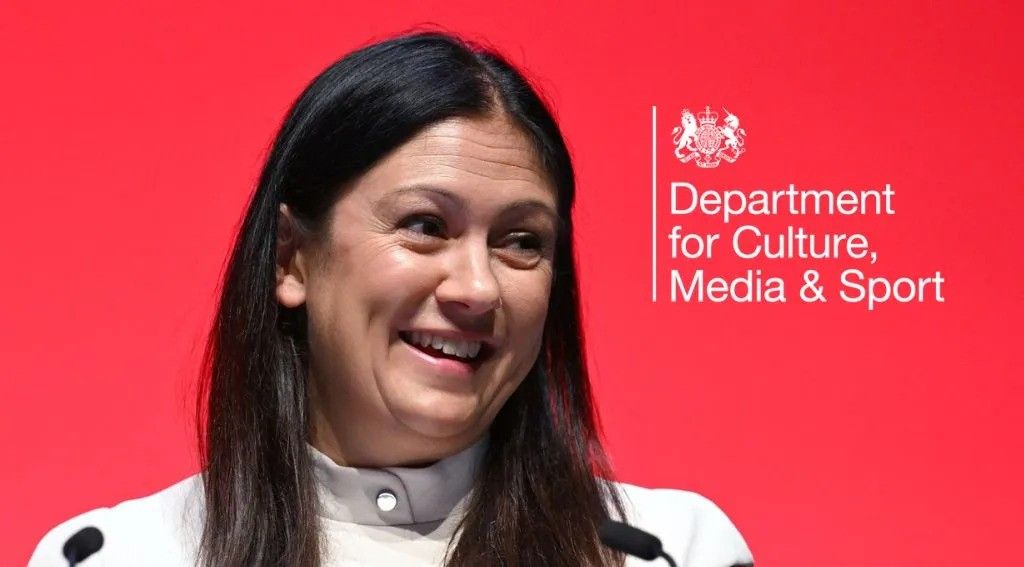
Lisa Nandy has been appointed as the new Minister for Culture, Media and Sport, heralding significant changes to the UK's political landscape. The appointment comes as part of a cabinet reshuffle by newly elected Prime Minister Keir Starmer following the Labour Party's landslide election victory, which saw the party set a record with 412 seats, ending 14 years of Conservative rule.
Lisa Nandy is expected to play a key role in reforming the UK's online gaming and gambling sector. The government is planning significant changes to gambling law, with a particular focus on online gaming. The proposed changes are designed to better protect vulnerable people and include more specific rules on when online operators must check customers' financial status for signs of serious losses.
The government is also considering introducing restrictions on online slots betting and increasing protection for young people aged 18 to 24. Other measures include slowing down the pace of online casino gaming and launching safer gaming campaigns. These reforms, which are expected to come into force by summer 2024, are aimed at creating a safer and more responsible environment for online gaming. As Secretary of State for Culture, Media and Sport, Nandy will play a major role in implementing and overseeing these reforms.
The UK Prime Minister announced Nandy's appointment on his social media channels this week
Lisa Nandy has been an MP since 2010. She initially struggled to establish herself in Westminster, but in 2016 she attracted media attention after leaving Jeremy Corbyn's front-line seat. Nandy's political career took a significant turn in 2020, when she ran for Labour Party leader and came third behind Rebecca Long-Bailey and the winner, Sir Kiir Starmer.
Despite being demoted from Starmer’s shadow cabinet in 2021, Nandy has continued to work hard. She has served as shadow secretary of state for equalisation, housing, communities and local government, and as international development secretary, both in the cabinet. Known as a representative of Labour’s “soft left”, Nandy’s political path has demonstrated her resilience and commitment to public service.
Lisa Nandy comes from a politically active family, with her grandfather being the leader of the Liberal Party in the House of Lords and her father being a Marxist academic, Nandy’s political leanings were evident from an early age. Nandy’s mother, a social worker and producer for Granada Television, also influenced her outlook. As a student, Lisa wrote dating columns and was a fan of the band Take That, adding to her unique personality.
Lisa Nandy lives a modest life with her partner Andy Collis, a PR consultant, and their eight-year-old son. She attended Pars Wood Grammar School and Holy Cross College, Bury. She then studied politics at Newcastle University and gained an MA in public policy from Birkbeck, University of London.
Nandy's political views are progressive and she has spoken out on issues such as the crisis of anti-Semitism in the Labour Party. Nandy represents the Wigan constituency and has a particular focus on improving northern towns. Her varied background and experiences, from middle-class life in Manchester to working with homeless and refugee children in London, have shaped her political views and approach, making her a significant figure in British politics.
Lisa Nandy's appointment is a clear sign of Kiir Starmer's commitment to promoting female politicians in his cabinet. She replaces Lucy Fraser, a Conservative minister appointed by previous prime minister Rishi Sunak in February 2023. Fraser was among several ministers who lost their seats at the last election.
Interestingly, Tangan Debbonaire, the Labour Party's shadow secretary for culture, media and sport, also lost her seat. Debbonaire had been expected to take up the role in government, but she suffered a heavy defeat to a Green Party rival.
Lisa Nandy, an MP since 2010, previously served as shadow international development secretary and shadow housing secretary. She represents the Wigan constituency in northern England. Although Nandy has no direct experience of the media and entertainment industry, she has a personal connection to the sector through her mother, a television producer, the Times of London reports.
In 2020, Nandy wrote an article for the Labour Party website titled : "I will defend a free media. This is how the BBC should be reformed." In the article, she proposed taxing social media companies to fund local media and investigative journalism, protecting the BBC licence fee, and restructuring the BBC board so that it is owned and run by licence fee holders.
Nandy's appointment as Secretary of State comes at a time of uncertainty for the UK screen sector. The industry is grappling with the impact of the pandemic, Hollywood writers and actors' strikes, budget cuts, a downturn in the TV advertising market and lower spending by streaming services. All of this has had a major impact on the largely freelance workforce.
Earlier this year, the Conservative government introduced a new 40 per cent tax credit for UK film productions with budgets under $19 million. The move was aimed at reviving the independent film sector, which had been on the brink of collapse, with spending falling to just $150 million in 2023. While the film industry welcomed the move, many believe the new government must do much more to protect a sector that is one of the fastest growing in the UK economy but has become increasingly vulnerable.
Source